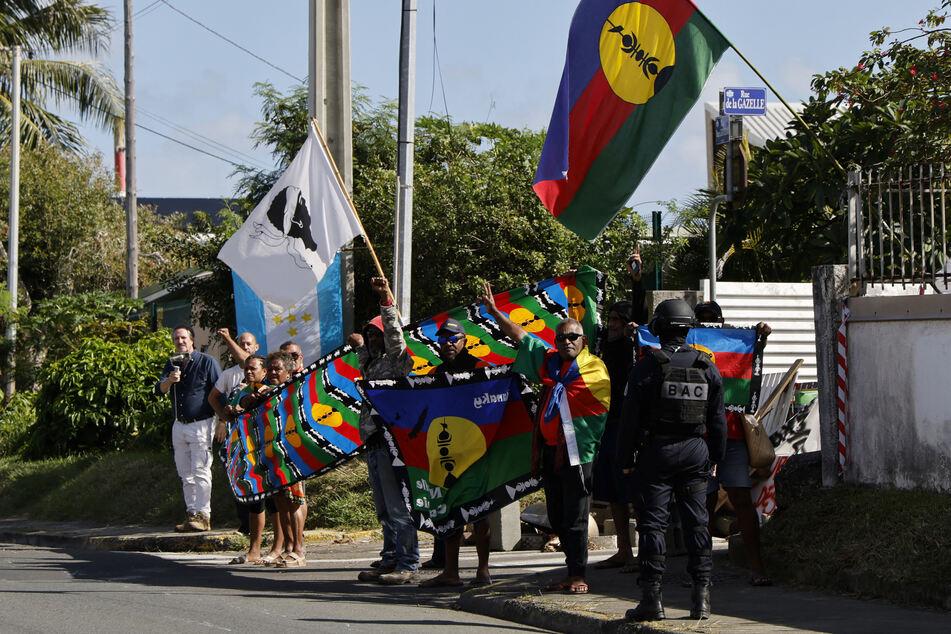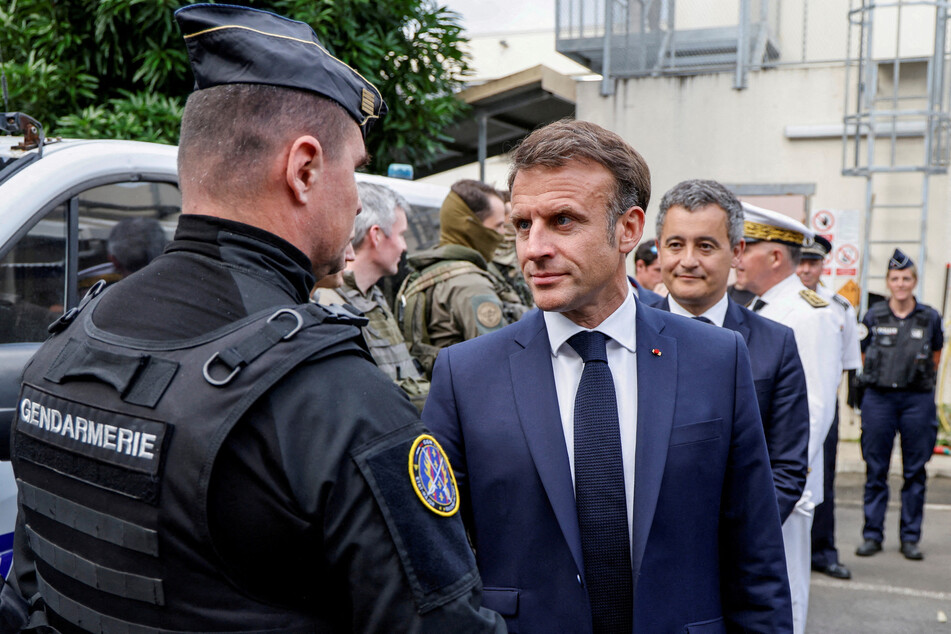France to lift New Caledonia state of emergency amid Indigenous uprising over voting law

"The President has decided for the time being not to extend the state of emergency" beyond its legal deadline of 12 days to allow for meetings with the pro-independence FLNKS party, the Elysee said in a statement Sunday.
Seven people have been killed in New Caledonia since an uprising over planned voting changes erupted on May 13.
Paris enforced the state of emergency two weeks ago, flying in hundreds of police and military reinforcements to the colonized territory, which lies around 10,600 miles from mainland France.
The French government said it hopes that this easing of restrictions will enable dialogue to be re-established on the many blockades still in place on the archipelago.
The lifting of the blockades is "the necessary condition for the opening of concrete and serious negotiations," the French presidency added in its statement, which said the state of emergency would be rescinded at 5:00 AM Tuesday.
President Emmanuel Macron flew to the Pacific archipelago on Thursday. The next day, France's Prime Minister Gabriel Attal said the situation "remains extremely fragile."
Police are struggling to control certain districts of the capital Noumea, and the international airport will remain closed to commercial flights until at least June 2.
The first French tourists were evacuated Saturday from Noumea aboard military aircraft headed for Australia and New Zealand. Australia and New Zealand had already begun repatriating their nationals on Tuesday.
The Elysee also announced "7 additional mobile force units, i.e. 480 mobile gendarmes" would be sent to New Caledonia "within the next few hours" as reinforcements.
In total, around 3,500 French troops have been deployed to the archipelago.
Indigenous Kanaks demand autonomy and independence

New Caledonia has been ruled from Paris since the 1800s, but many Indigenous Kanaks still resent France's power over their islands and want fuller autonomy or independence.
France is planning to give voting rights to thousands of non-Indigenous long-term residents, something Kanaks say would dilute the influence of their votes.
Macron pledged during his lightning trip to New Caledonia that the planned voting reforms "will not be forced through."
"Violence should never be allowed to take root," Macron said told journalists at the end of his visit, adding that all roadblocks should be "immediately" removed.
Christian Tein, leader of the CCAT, the pro-independence group organizing the protests, did not call off the roadblocks, but said on Friday that he wanted to "loosen the noose a little" so that fuel and medicines could be delivered.
"This is our priority," he said.
The FLNKS party reiterated on Saturday its demand for the withdrawal of the voting reforms after meeting with Macron.
The president said he would be willing to hold a referendum on the contentious changes, though he hoped that elected New Caledonia officials would be able to reach an agreement.
"I can move toward a referendum at any time," he told the Parisien newspaper in an interview Saturday.
"Even if the violence ends, we will have to live together again. That's the hardest thing."
Cover photo: LUDOVIC MARIN/Pool via REUTERS

